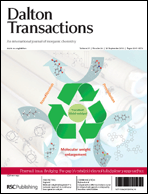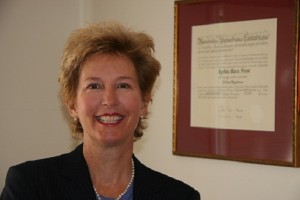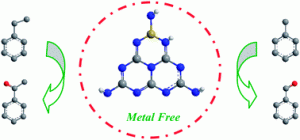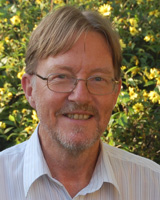I am delighted to announce the appointment of Professor Paul Kamer, University of St. Andrews, UK, as Associate Editor for Catalysis Science & Technology. Paul’s appointment brings to three the number of Associate Editors for the journal, who welcome manuscripts for consideration for publication in the journal: Professor Paul Chirik, Professor Paul Kamer and Professor Noritaka Mizuno.
Professor Paul Chirik, Cornell University

Paul Chirik is currently the Peter J. W. Debye Professor of Chemistry at Cornell University, NY, USA. His work is focussed on homogeneous catalysis and small molecule activation using transition metal complexes. The goal of this research is the discovery of energy-efficient chemical transformations that minimize byproducts, separation of waste and eliminate precious metals. Paul is moving to Princeton (NJ, USA) in January 2011 to take up the position of Edward S. Sanford Professor of Chemistry.
Professor Paul Kamer, University of St. Andrews
Paul Kamer did his PhD in organic chemistry at the University of Utrecht. As a postdoctoral fellow of the Dutch Cancer Society (KWF) he carried out postdoctoral research at the California Institute of Technology and the University of Leiden. He was appointed Lecturer at the University of Amsterdam and full Professor of homogeneous catalysis in 2005. In 2005 he received a Marie Curie Excellence Grant and moved to the University of St Andrews. His current research interests are (asymmetric) homogeneous catalysis, biocatalysis, combinatorial synthesis, and artificial metalloenzymes.
Professor Noritaka Mizuno, University of Tokyo

Noritaka Mizuno received his Bachelor’s degree in synthetic chemistry at the University of Tokyo in 1980. He received his PhD from the same university in 1985 for his research on the heterogeneous oxidation catalysis of heteropoly compounds. In 1989 he moved to the Professor Richard G. Finke lab at the University of Oregon as a postdoc and then in 1990, returned to Japan as an Associate Professor at Catalysis Research Center, Hokkaido University. In 1994, he moved to the Institute of Industrial Science, the University of Tokyo, and then to the Department of Applied Chemistry of the same university, where he has been a full Professor since 2001. His research interests are mainly directed toward catalysis of metal oxide clusters such as heteropoly compounds and zeolitic materials and their syntheses.
Be part of Catalysis Science & Technology from the very beginning – submit your manuscripts today to be included in the first issues.
Comments Off on New Associate Editor: Professor Paul Kamer
 You can find out what is going on in Catalysis Science & Technology in new ways now we have joined Facebook and Twitter.
You can find out what is going on in Catalysis Science & Technology in new ways now we have joined Facebook and Twitter.











 eresting collection of articles is ‘dedicated to molecular approaches in catalysis dealing with the preparation, characterization, modeling, and reactivity of catalysts whether homogeneous, heterogeneous or biocatalysts’ and includes contributions from the guest editors Christophe Coperet and Rutger van Santen, as well as a range of scientists such as Timo Jacob, Dieter Vogt, Xiaodong Zou and Johannes G. de Vries.
eresting collection of articles is ‘dedicated to molecular approaches in catalysis dealing with the preparation, characterization, modeling, and reactivity of catalysts whether homogeneous, heterogeneous or biocatalysts’ and includes contributions from the guest editors Christophe Coperet and Rutger van Santen, as well as a range of scientists such as Timo Jacob, Dieter Vogt, Xiaodong Zou and Johannes G. de Vries.





